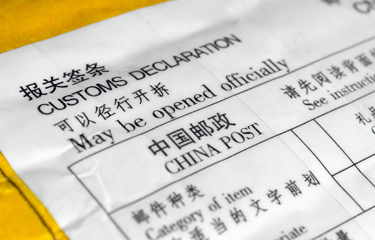The General Administration of Customs China (GACC) has written to the food safety agencies of most of its main trading partners to officially request assurances that food processing establishments eligible to export to China follow measures to prevent any COVID-19 contamination of food products during food production.
Additionally, U.S. seafood companies have gotten a form from customers in China requiring them to sign a declaration stating their compliance with Chinese laws, regulations, and standards and the COVID-19 guidance for food businesses published by the United Nations’ Food and Agriculture Organization and the World Health Organization to ensure that food imported into China is not contaminated with the COVID-19 virus. The FAO and WHO have both declined to make any link between COVID transmission and seafood.
The GACC has not published official guidance on its website and there have been suggestions on several Chinese seafood industry chat groups on Wechat that the letter may be an attempt to release the regulatory body from an onerous commitment of inspecting all inbound containers of meat and seafood.
As for the GACC’s requirement of a guarantee from export nations, a European corporate lawyer in Beijing questions the thinking behind China’s document.
“It’s not clear what the legal standing of any commitment is with either the Chinese government or protocols signed between Beijing and other governments,” the lawyer, who requested anonymity, told SeafoodSource.
Also, seafood exporters are worried that signing a document implies there is a connection between the recent outbreak of COVID-19 in Beijing and imported seafood, the lawyer said.
The panic that had subsumed China over a possible link between imported salmon and COVID-19 has been fading on China’s news feeds in the past 24 hours, with the head of Beijing’s Centre for Disease Control declaring the outbreak “under control.”
Instead, China Central TV has in recent days given blanket coverage to an outbreak of coronavirus among workers at the giant Tonnies meat factory complex in Germany.
“It appears that they have conflated the outbreak of COVID among workers in meat plants with outbreaks of COVID in food, which isn’t happening,” the lawyer said.
After years of foreign censure for being the source of food safety crises, China appears to be enjoying some schadenfreude in lecturing foreign governments about preventing transmission of the COVID-19 virus through the food chain, even though there has been no evidence of transmission through food.
Serious transgressions of China’s own food safety laws have been regularly reported in the local media in recent years. These include glazing of shrimp and other seafood with carcinogenic chemicals like the fungicides potassium permanganate and potassium permanganate, as well as the operations of unlicensed abattoirs processing sick or dead animals.
In recent years, China has sought to increase consumer confidence in its domestic food brands – some of them produced by state-owned firms – which have lost market share to foreign products due to Chinese consumers’ worries over food safety.
Photo courtesy of Claudio Divizia/Shutterstock







